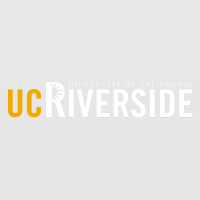

A Global Research Conference to showcase research and contribution in the field of AGI
Researchers joining us from














Summit Schedule
Opening ceremony
The AGI Leap Summit officially kicks off with an opening ceremony led by members from our AI research community. The opening ceremony welcomes participants from around the globe, highlighting the significance and goals of the summit. It serves as an introduction to the current state and future prospects of Artificial General Intelligence, setting the stage for depth and breadth of discussions to follow.
Spotlight Research
The Summit features keynote sessions by distinguished experts in the field of AGI and related areas. These accomplished researchers bring experience from their careers, offering unique views on cutting-edge technologies and their uses across various domains, including Artificial Intelligence and AGI.
Paper presentations
Each participating researcher showcases the essence and findings of their work. These presentations are designed to inform and engage the audience effectively. Paper presentations allow researchers to delve into their topics based on the tracks that they have been put into. All 5 tracks run parallelly throughout the summit. Each presentation lasts 10-15 minutes, with sessions scheduled throughout the summit.
AI Applications & Survey – View Recording
AI Based Systems – View Recording
AI Safety, Security & Performance – View Recording
Multimodality: View Recording
Reasoning & Intelligence: View Recording
Closing ceremony and best paper awards
The AGI Leap Summit concludes with a ceremony to honor the outstanding contributions made during the event. The best paper presentation awards are announced, celebrating the exemplary research and efforts of participants. This final gathering reflects on the discussions, discoveries, and shared experiences of the summit, reinforcing the commitment to advancing the field of Artificial General Intelligence through continuous inquiry and collaboration.
Best Paper Awards
CRUXEval: Code Reasoning, Understanding, and Execution Evaluation

Alex Gu
Massachusetts Institute of Technology
Prompting Frameworks for Large Language Models: A Survey

Xiaoxia LIU
Zhejiang University
Creativity Under Turing Tests Constraints: A Modified Drake Equation For Assessing Large Language Models

David Noever
PeopleTec
AutoTAMP: Autoregressive Task and Motion Planning with LLMs as Translators and Checkers

Yongchao Chen
Massachusetts Institute of Technology
Full Automation of Goal-driven LLM Dialog Threadswith And-Or Recursors and Refiner Oracles

Paul Tarau
University of North Texas
Spotlight Research
Can LLM-Generated Misinformation Be Detected?

Canyu Chen
Illinois Institute of Technology
LLM Harmony: Multi-Agent Communication for Problem Solving

Sumedh Rasal
HERE Technologies
Balancing Autonomy and Alignment: A Multi-Dimensional Taxonomy for Autonomous LLM-powered Multi-Agent Architectures

Thorsten Händler
Ferdinand Porsche Mobile University (FERNFH)
Enhancing LLM Intelligence with ARM-RAG: Auxiliary Rationale Memory for Retrieval Augmented Generation

Eric Melz
SearchStax
The concept of SP-Multiple-Alignment as the ‘double helix’ of intelligence

Gerry Wolff
Cognition Research
Investigating Emergent Goal-Like Behaviour in Large Language Models Using Experimental Economics

Steve Phelps
Mesonomics
HuggingGPT: Solving AI Tasks with ChatGPT and its Friends in Hugging Face

Kaitao Song
Microsoft Research
The Impact of Large Language Models on Scientific Discovery: a Preliminary Study using GPT-4

Lijun Wu
Microsoft Research
FinGPT: Open-Source Financial Large Language Models

Bruce Yang
AI4Finance-Foundation
LORD: Low Rank Decomposition Of Monolingual Code LLMs For One-Shot Compression

Ayush Kaushal
Nolano.ai
Agent Based Systems
Creativity Under Turing Tests Constraints: A Modified Drake Equation For Assessing Large Language Models

David Noever
PeopleTec
Action-GPT: Leveraging Large-scale Language Models for Improved and Generalized Action Generation

Kalakonda Sai Shashank
International Institute of Information Technology, Hyderabad
Analyzing Intentional Behavior in Autonomous Agents under Uncertainty

Filip Cano
Technische Universität Graz
Concepts is All You Need: A More Direct Path to AGI

Peter Voss
Aigo.ai
Autonomous GIS: the next-generation AI-powered GIS

Zhenlong Li
Pennsylvania State University
E&V: Prompting Large Language Models to Perform Static Analysis by Pseudo-code Execution and Verification

Yu Hao
University of California, Riverside
RecallM: An Adaptable Memory Mechanism with Temporal Understanding for Large Language Models

Brandon Kynoch
The University of Texas at Austin
AI Applications & Survey
Prompting Frameworks for Large Language Models: A Survey

Xiaoxia LIU
Zhejiang University
Artificial Intelligence Index Report 2023

Nestor Maslej
Stanford University, HAI
Dynamic On-Demand Crowdshipping Using Constrained and Heuristics Embedded Double Dueling Deep Q-Network

Theja Tulabandhula
University of Illinois Chicago
A Language for Large-Scale Collaboration in Economics: A Streamlined Computational Representation of Financial Models

Jorge M. Faleiro Jr.
Optera Analytics
Unlocking AI in Healthcare: The Power of Geometric Unified Learning (GUL) Technology

Weiqing Gu
Dasion.ai
Revolutionizing Mental Health Care through LangChain: A Journey with a Large Language Model

Aditi Singh
Cleveland State University
RGB-X Object Detection via Scene-Specific Fusion Modules

Sri Aditya Deevi
Indian Space Research Organisation
Revolutionizing Pharma: Unveiling the AI and LLM Trends in the Pharmaceutical Industry

Yu Han
University of Oxford
AI Safety, Security & Performance
CRUXEval: Code Reasoning, Understanding, and Execution Evaluation

Alex Gu
Massachusetts Institute of Technology
Taking control: Policies to address extinction risks from advanced AI

Akash Wasil
Control AI
Robustness of AI-Image Detectors: Fundamental Limits and Practical Attacks

Mehrdad Saberi
University of Maryland
SAFE Artificial Intelligence in Finance

Paolo Giudici
Università degli Studi di Pavia
LLMs and Finetuning: Benchmarking cross-domain performance for hate speech detection

Ahmad Nasir
Independent Researcher, IIT Delhi
A Trade-off Analysis of Replacing Proprietary LLMs with Open Source SLMs in Production

Yiping Kang
Jaseci Labs, University of Michigan
Considering Caring as a Safeguard in Artificial Intelligence

Russell Suereth
Salve Regina University
Multimodality
AutoTAMP: Autoregressive Task and Motion Planning with LLMs as Translators and Checkers

Yongchao Chen
Massachusetts Institute of Technology
Voice2Action: Language Models as Agent for Efficient Real-Time Interaction in Virtual Reality

Yang Su
Cornell University
FAITHSCORE: Evaluating Hallucinations in Large Vision-Language Models.

Liqiang Jing
University of Texas at Dallas
HallusionBench: An Advanced Diagnostic Suite for Entangled Language Hallucination & Visual Illusion in Large Vision-Language Models

Tianrui Guan
University of Maryland
Concept-Guided Prompt Learning for Generalization in Vision-Language Models

Yi Zhang
Southern University of Sicence and Technology
Jailbreak in pieces: Compositional Adversarial Attacks on Multi-Modal Language Models

Erfan Shayegani
University of California
GeoLocator: a location-integrated large multimodal model for inferringgeo-privacy

Yifan Yang
University of Southern California
VIM: Probing Multimodal Large Language Models for Visual Embedded Instruction Following

Yujie Lu
UC Santa Barbara
Reasoning & Intelligence
Full Automation of Goal-driven LLM Dialog Threadswith And-Or Recursors and Refiner Oracles

Paul Tarau
University of North Texas
Breaking Free Transformer Models: Task-specific Context Attribution Promises Improved Generalizability Without Fine-tuning Pre-trained LLMs

Stepan Tytarenko
Fordham University
AdANNS: A Framework for Adaptive Semantic Search

Aniket Rege
University of Wisconsin-Madison
On Feynman-Kac training of partial Bayesian neural networks

Zheng Zhao
Uppsala University
Extracting human interpretable structure-property relationships in chemistry using XAI and large language models

Geemi Wellawatte
École polytechnique fédérale de Lausanne
Hominis – Designing Bias mitigating human-centered foundation models

Narendra Patwardhan
Real AI Inc
Hominis – Designing Bias mitigating human-centered foundation models

Tarry Singh
Real AI Inc
Large Language Models for Semantic Monitoring of Corporate Disclosures: A Case Study on Korea’s Top 50 KOSPI Companies

Junwon Sung
University at Buffalo
SpeechGPT-Gen: Scaling Chain-of-Information Speech Generation

Dong Zhang
Fudan University
Freely Long-Thinking Transformer (FraiLT)

Akbay Tabak
Bytro Labs GmbH
